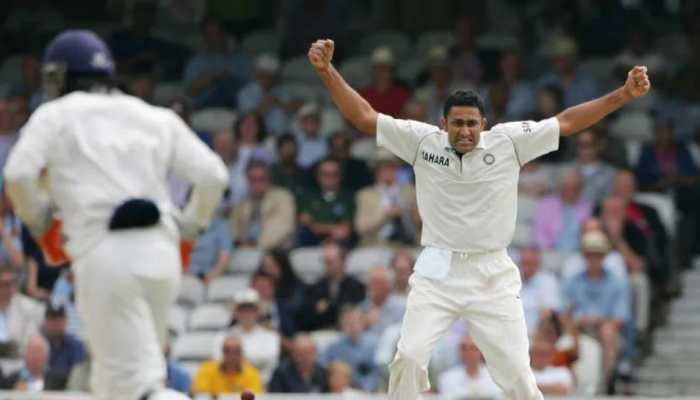Sabarimala temple verdict: Maneka Gandhi, Rekha Sharma, women activists hail SC decision, call it historic judgement
The verdict of the Supreme Court on Friday allowing females to enter the Ayyappa temple at Sabarimala in Kerala has been welcomed with open hands by the women, including political leaders and activists across the country.
Trending Photos
The verdict of the Supreme Court on Friday allowing females to enter the Ayyappa temple at Sabarimala in Kerala has been welcomed with open hands by the women, including political leaders and activists across the country.
Reacting to the judgement, Women and Child Development (WCD) Minister Maneka Gandhi welcomed it as a "wonderful" judgement that paves the way to make Hinduism even more inclusive. "It opens up the way forward for Hinduism to become even more inclusive and not a property of one caste or one sex," Gandhi said.
Hailing the apex court's judgement, National Commission for Women (NCW) Chief Rekha Sharma said that now women have the right to make the decision if they want to go inside the temple. She added that earlier it was imposed on them. "I welcome the decision. Now women can choose if they want to go or not. Earlier it was imposed on them in name of religion. When the right to equality and religion are there, right to equality should win," said the NCW Chief.
Karnataka Women and Child Development Minister Jayamala termed the decision "historic" saying that women have now got justice. "There is no happier moment in my life other than this. I thank the women community, Supreme Court judges and God today...I also thank Ambedkar who wrote our Constitution," Jayamala told reporters.
She said she had expected such a judgement and credited the country's legal system and Constitution for it. "Women have got justice today. This is a historic moment," the minister added.
The actress-turned-politician had created a storm in June 2006 by claiming that she had in her prime youth entered the sanctum sanctorum of the temple and touched the idol of the presiding deity. In 2010, the Crime Branch of Kerala Police had charge-sheeted her along with others stating that they were involved in a deliberate and malicious act intended to outrage religious feelings under Section 295 of Indian Penal Code.
Responding to a question on the earlier incident, Jayamala said, "That day also I had faith and belief in God and our Judiciary, and that faith and belief has come true today." Asked about the opposing voices to the judgement, she said: "God will protect."
Women activists hailed the judgement but expressed concern over its acceptance at the ground level by people.
Chhavi Methi, a women rights activist welcomed the judgement but said its acceptance remains to be seen. "I am doubtful the temple authorities would take it in the right spirit. Women would accept it but its implementation might pose a problem," she said.
Another women rights activist Vani Subramaniam said the decision is an extension of various pro-equality judgements taken by the Supreme Court, but she too expressed concern over the community's reaction to it. "Question remains to be seen how it is accepted in the community and by the people at the ground level," she said.
Mariam Dhawale, General Secretary of The All India Democratic Women's Association, called it another step that would help in bringing equality. "We welcome the judgement. Women have a constitutional right to be able to visit the temple and whoever wishes must be allowed to visit it," she said.
A five-judge constitution bench headed by Chief Justice Dipak Misra, in its 4:1 verdict, said that banning the entry of women into the shrine is gender discrimination and the practice violates rights of Hindu women. The apex court pronounced its verdict on a clutch of pleas challenging the ban on entry of women of menstrual age in Kerala's Sabarimala temple and said law and society are tasked with the task to act as levellers.
Justice Chandrachud said religion cannot be used as cover to deny rights of worship to women and it is also against human dignity. He said the prohibition on women is due to non-religious reasons and it is a grim shadow of discrimination going on for centuries.
The CJI said the practice of exclusion of women of 10-50 age group cannot be regarded as essential religious practice and Kerala law denies rights to women on the ground of physiological reasons.
Justice Nariman said the Sabarimala temple custom barring women of 10-50 age is not backed by Article 25 and 26 of the Constitution. The custom of barring women is violative of Article 25 (Clause 1) and Rule 3(b) of Kerala Hindu Places of Public Worship (authorisation of entry) Rules, 1965 is struck down by Justice Nariman.
Stay informed on all the latest news, real-time breaking news updates, and follow all the important headlines in india news and world News on Zee News.
Live Tv







)
)
)
)
)
)
)
)
)
)
